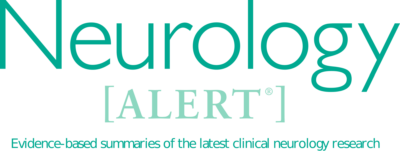
Neurology Alert – February 1, 2018
February 1, 2018
View Issues
-
Neuroimmunology and Movement Disorders: When Should We Test for Autoantibodies?
Autoantibody-associated neurological disorders can mimic neurodegenerative and other movement disorders, but are likely under-diagnosed, resulting in missed treatment opportunities. This review is a “must read” for all neurologists.
-
Targeting Hypersensitive Corticostriatal Terminals to Treat Restless Legs Syndrome
SYNOPSIS: Based on this innovative study using optogenetic microdialysis, the mechanisms underlying restless legs syndrome include dopamine-mediated hypersensitivity of corticostriatal neurons to glutamate release.
-
Functional Imaging Studies in Parkinson’s Disease
A meta-analysis of 142 studies demonstrated that functional imaging studies in Parkinson’s disease using tracers for aromatic acid decarboxylase showed smaller defects compared to those using tracers targeting dopamine transport and VMAT2. Symptom severity correlated linearly with dopamine neuron loss as determined by these imaging studies.
-
Myasthenia Gravis, MuSK, and Pregnancy
Myasthenia gravis increases both maternal and fetal complications and mortality during pregnancy, but the MuSK-antibody variant appears less morbid, based on this small retrospective series of 17 patients.
-
Pain in Anti-MAG Neuropathy
Most patients with anti-MAG neuropathy complain of painful paresthesias or dysesthesias, but unlike diabetic neuropathy, these symptoms are not severe and do not affect quality of life as much as motor weakness.
-
Serum Tau as a Reliable Biomarker of Outcome After Cardiac Arrest
Currently, there are no reliable and readily available biomarkers to assist in determining prognosis for neurological recovery after cardiac arrest, but serum tau measurements hold promise for the future.
